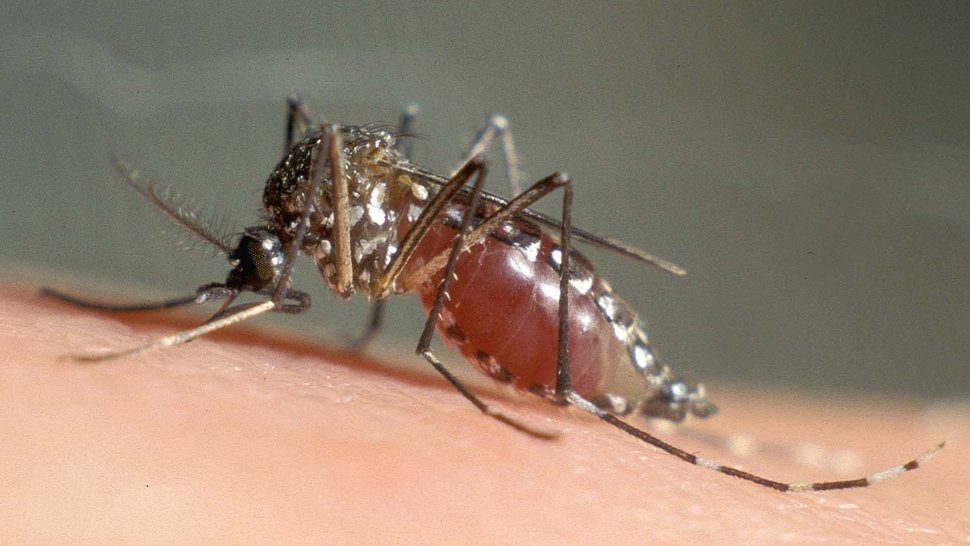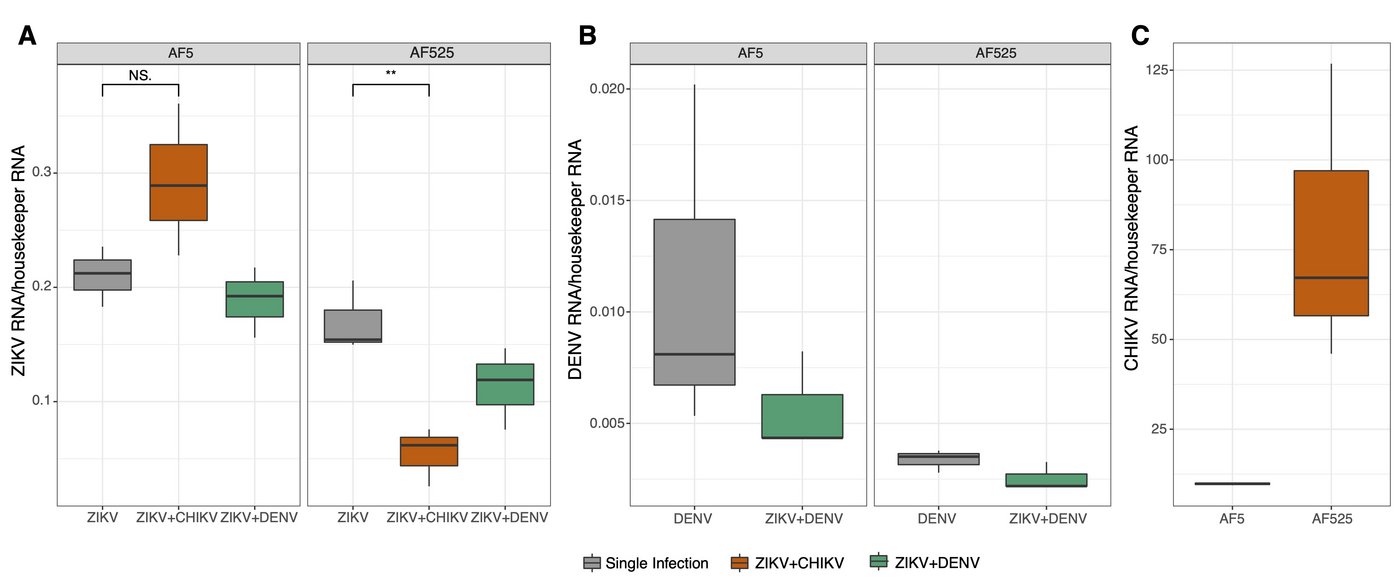The yellow fever mosquito: Perfect feeder service for arboviruses
The yellow fever mosquito Aedes aegypti can transmit a variety of viruses to humans, so-called arboviruses. Three prominent examples are Zika, Dengue and Chikungunya viruses. While we can become seriously ill after such an infection, the mosquito apparently doesn't mind much. How does it do this? How does its immune system respond when it picks up several of these types of viruses at once? And what does this mean for its ability to pass them on to us? This is what a working group of the Bernhard Nocht Institute for Tropical Medicine (BNITM) has investigated together with partners of the international research consortium "ZIKAlliance". Their study has been published in the scientific journal "PLOS Neglected Tropical Diseases".

The Zika virus rarely comes alone: in Brazil, for example, one of the main areas of distribution, the pathogens of dengue and chikungunya fever are also circulating at the same time. The Zika virus shares not only its geographical distribution area with these viruses, but also its vector: the yellow fever mosquito Ae. aegypti. Apparently, the vector mosquito can sometimes transmit several viruses at once and cause major outbreaks of different diseases in humans at the same time.
This is probably possible thanks to an infectious equilibrium of these viruses in the mosquito. For if a virus were to multiply very strongly in it, the mosquito would die and not pass on the virus. The same would be the case if it successfully fought the virus.
The mosquito-virus interaction group mosquio-virus interaction group led by Prof. Esther Schnettler therefore wanted to find out how the immune system of Ae. aegypti reacts to a single infection with Zika viruses and how it reacts to a co-infection with Zika and dengue or Zika and chikungunya viruses. As part of the EU-funded international research consortium "ZIKAlliance", researchers at the Institut Pasteur in Paris infected yellow fever mosquitoes with the corresponding pathogens using blood meals. Subsequently, the working group at BNITM, together with colleagues at the MRC – University of Glasgow Centre for Virus Research, investigated an important part of the antiviral immune defence of mosquitoes, the so-called RNA interference (RNAi), using Next Generation Sequencing. RNAi comprises various cellular reaction pathways that are used to defend against foreign RNA, including arboviral RNA.

The result: RNAi is activated, and Ae. aegypti is not only little or not at all bothered by a single infection with Zika viruses. It also keeps a simultaneous infection with dengue or chikungunya viruses in check with RNAi.
Interesting detail: When the researchers completely switched off a certain protein of the antiviral RNAi immune response, Zika viruses were able to replicate less during a chikungunya virus co-infection. This was not the case during co-infection with dengue viruses.
"Our results provide new insights into the processes of arboviral coinfection in mosquito vectors," says working group leader Prof. Dr Esther Schnettler. "They improve our understanding of coinfection scenarios during arbovirus outbreaks." The study provides evidence that Zika single infections and Zika co-infections with chikungunya and dengue viruses, respectively, are equally controlled by the antiviral RNAi response.
Good news for yellow fever mosquitoes and arboviruses, bad news for humans: Ae. aegypti thus support co-infections of Zika viruses with chikungunya or dengue viruses to a similar extent as single infections, as long as the RNAi response works. But this also means that yellow fever mosquitoes are equally good at passing these viruses on to us.
Original publication
Schnettler, Esther et al.: The Aedes aegypti RNA interference response against Zika virus in the context of co-infection with dengue and chikungunya viruses. PLOS Neglected Tropical Diseases. 13 July 2023.
Contact person
Prof. Dr Esther Schnettler
Research Group Leader
Phone : +49 40 285380-208
Email : schnettler@bnitm.de
Julia Rauner
Public Relations
Phone : +49 40 285380-264
Email : presse@bnitm.de
Further information







